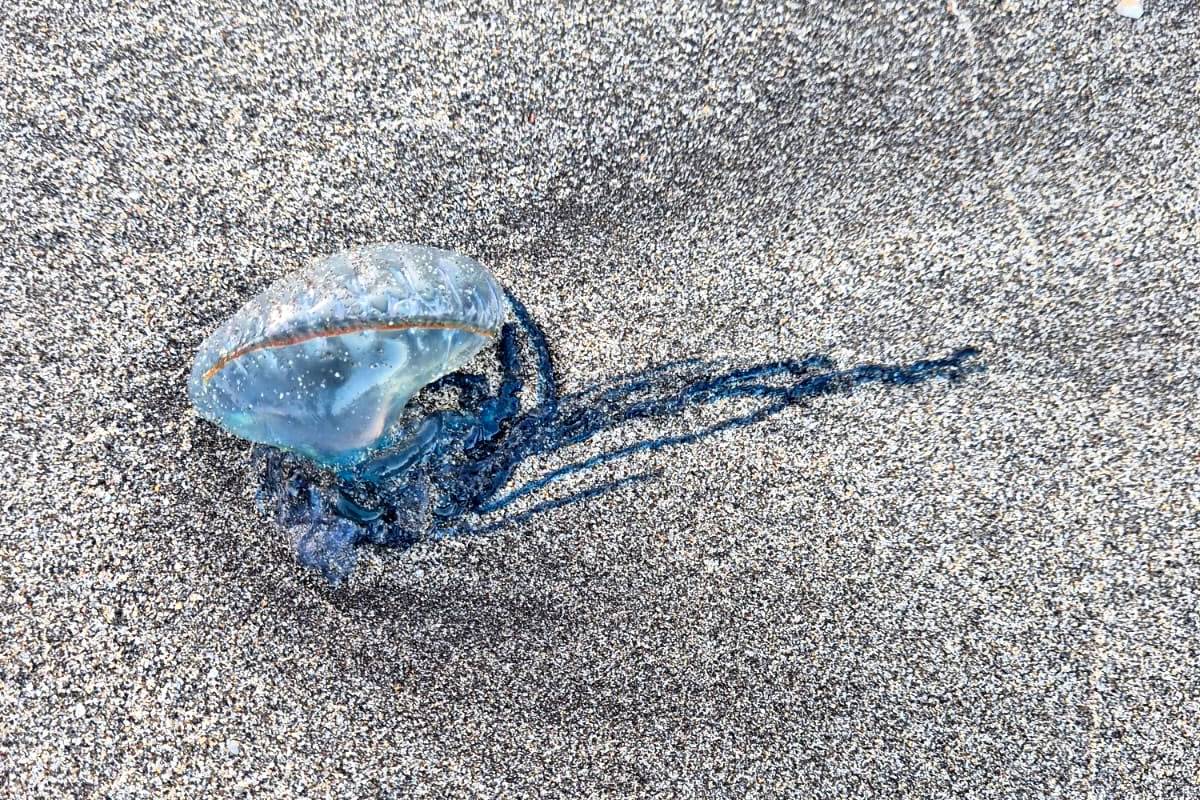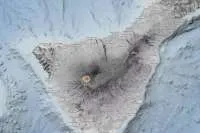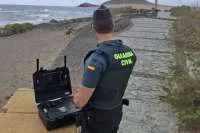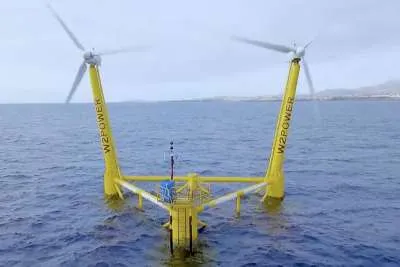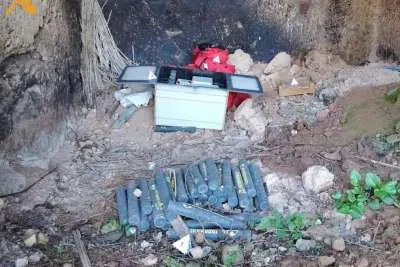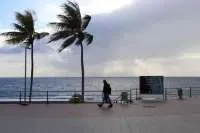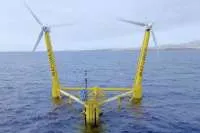Warning flags on beach in Costa Adeje due to presence of Portuguese Man O War jellyfish
- 18-02-2025
- Tenerife
- Canarian Weekly
- Photo Credit: Ocean Angel
La Pinta Beach in Costa Adeje, south Tenerife, is displaying the flag for jellyfish warning due to the presence of Portuguese Man O War jellyfish. The purple and white flag advises people to stay out of the water because although not deadly to humans, they do have a nasty sting.
Although many people marvel at their bright colours and describe them as "beauty in motion”, the stings from their trailing tentacles are not remembered with such affection.
If stung, it is recommended to wash the affected area with saline solution or, failing that, seawater, and to remove any remains of tentacles left on the skin whilst wearing gloves or using tweezers.
It is also advisable to apply something cold to it, e.g. ice, for 5-15 minutes whilst avoiding direct contact with the skin with your hands. Also do not touch, scratch, or rub the area with towels or sand.
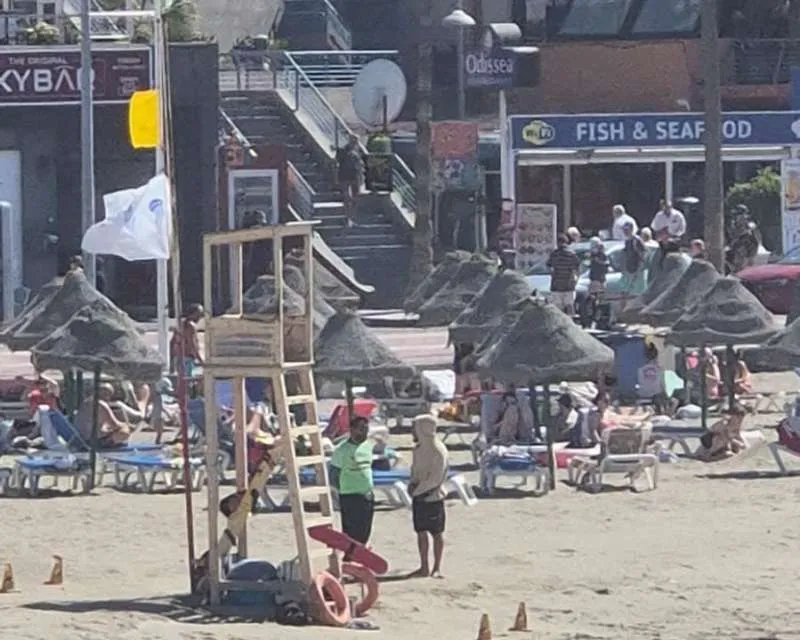
About Portuguese Man O’ War:
The Portuguese Man O’ War (Physalia physalis) is most recognisable by its translucent, gas-filled bladder, which floats on the ocean’s surface and can be tinged blue, purple, or pink.
Long, venomous tentacles dangle below it, sometimes reaching up to 165 feet (50 metres) in length, delivering painful and potentially dangerous stings to prey and unsuspecting swimmers.
Despite its delicate, balloon-like appearance, the Portuguese Man O’ War is a formidable predator, using its tentacles to paralyse small fish and other marine creatures.
Found primarily in warm ocean waters, especially in the Atlantic, Indian, and Pacific Oceans, it travels with ocean currents rather than actively swimming. While its sting is rarely fatal to humans, it can cause intense pain, skin welts, and, in some cases, allergic reactions requiring medical attention.
Other articles that may interest you...
Trending
Most Read Articles
Featured Videos
TributoFest: Michael Buble promo 14.02.2026
- 30-01-2026
TEAs 2025 Highlights
- 17-11-2025


